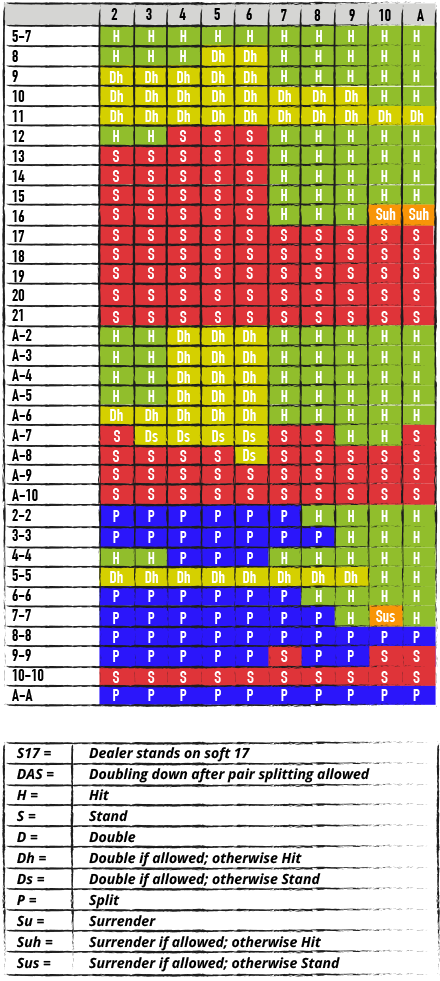Blackjack Single Deck Odds
Vegas Single Deck Blackjack is often regarded as the top rung of the game since the odds on the player winning is simply the highest. The house edge is, in fact, merely 0.15% a single deck is used. Nevertheless, as with all things, really, even when playing Vegas Single Deck Blackjack there are both pros and cons. The Benefits of a Single Deck. Blackjack is the name of the game. So what are the odds of getting dealt a blackjack? The probability depends on how many decks are played. Of course the essential ingredients to blackjack are an ace and a ten-value card (10, jack, queen, or king). In a single deck game there are 4 aces and 16 ten-value cards. You can get blackjack in one of.
- Blackjack Single Deck Odds Calculator
- Blackjack Single Deck Odds Bet
- Single Deck Blackjack Odds
- Blackjack Single Deck Odds Explained
Blackjack Single Deck Odds Calculator

How to play blackjack
Understanding the odds offered in any game of blackjack starts with understanding the basics of blackjack gameplay.
Standard 52-card decks are used. Non-face cards have the value of the number printed on them, while jacks, kings and queens are all worth 10, and aces are worth one or 11.
Blackjack Single Deck Odds Bet
The game has a relatively simple goal: You take cards aiming to get as closeto 21 as you can without going over. Then, you can win in one of two ways: Either the dealer busts by going over 21, or you beat the dealer’s hand. You can also push and will get your bet back if you tie the dealer.
At the start of a game, you and the other players at the table place a bet.
Single Deck Blackjack Odds
Sonny, I agree with all that you say on this issue. But, I still believe 1st base increases your odds of getting the type of 2 card hand that is respective of the tc. Therefore, the bet size is perfect. I also believe that if I'm seeing so many of my neighbors cards, there's too many people on the table for single deck play.

Then, you, the other players at the table and the dealer each receive two cards to start. You and the other players act on your hands before the dealer and can take one of several actions depending on the cards you are dealt. If you hit and go over 21, you lose, regardless of what happens later with the dealer’s hand.
You make these decisions with only one of the dealer’s cards visible. There is no decision if you get dealt an aceand a card worth 10. It means you’ve hit blackjack and get paid 3:2 or 6:5 on your bet, depending on the specific rules of the game and whether the dealer also has blackjack. If the dealer also has blackjack, you’ll likely push depending on the specific rules of the game.
The actions available to you include:
Blackjack Single Deck Odds Explained
- Standing: Anytime you’re happy with your hand, you can stand. You’ll get no more cards and will get paid 1:1 if either the dealer goes bust or you beat the dealer’s hand.
- Hitting: As long as you’re under 21, you can hit and draw cards to get closer to 21. You can continue hitting until you decide to stand or bust by going over 21.
- Doubling down: You can double down after the first two cards are dealt, depending on the value of your hand and the rules of the game. You double your bet and you’ll get just one more card to go up against the dealer with.
- Splitting: If you’re dealt a pair you can split the two cards into two separatehands. You double your bet and the dealer will give each hand a second card, allowing you to play each one separately. Depending on the cards and the rules of the game, you may even be able to double down after splitting or split again.
- Surrendering: Depending on the rules of the game, you may be able to surrender, or give up your hand. You’ll get half your betback. It’s statistically proven to be a good play when you’ve got 16 against a dealer’s nine, 10 or ace, or 15 against a 10 or ace.
- Buying insurance: If the dealer is showing an ace, you have the option of buying insurance. It costs half of your original bet size and pays 2:1 if the dealer has blackjack, making the hand a push for you. If the dealer doesn’t have blackjack, you lose what you paid for insurance and the hand continues. The house edge on insurance is a whopping 6.7%.
